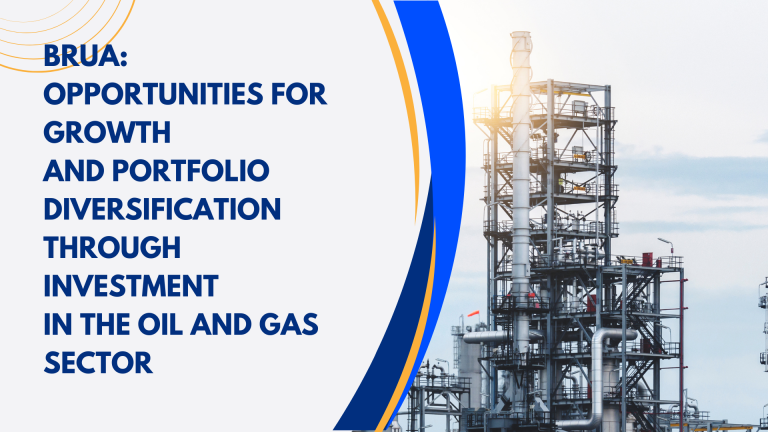Introduction
Jastrzębska Spółka Węglowa S.A. (JSW) is Europe’s largest producer of high-quality coking coal. Founded on April 1, 1993, it consolidated seven mining companies into a single state-owned enterprise. In 2011, JSW S.A. premiered on the Warsaw Stock Exchange and is now part of the WIG20 index, which includes the 20 largest and most liquid companies in Poland.
JSW focuses on the extraction, processing, and sale of hard coal, including coking coal, essential for steel production, and coal for energy production. The European Union has recognized coking coal as one of 30 critical raw materials, emphasizing its strategic importance for modern economies and infrastructures. JSW exports its coking coal to steel producers globally, not just in Poland and Europe.
JSW employs over 30,000 people and generates annual sales of approximately 10 billion PLN, making it a profitable company.
Investing in JSW Shares – How Can You Buy Them?
JSW shares are listed on the Warsaw Stock Exchange (GPW) and can be traded on weekdays from 9 am to 5 pm under the ticker symbol JSW. If you’re interested in investing in JSW shares, consider opening an account with a reputable broker.
Step-by-Step Process to Buy JSW Shares
Step 1: Choose a Broker
Investing in JSW shares requires using an investment platform provided by brokers. This could be a brokerage account with a bank or a brokerage firm that allows trading JSW shares. Ensure the broker offers the financial instruments you are interested in.
Remember that you are entrusting your money to the broker. Thus, your choice should be well-researched. Check the fees associated with account setup and maintenance. Verify the broker’s credibility by reading reviews and client testimonials. Also, consider how long the broker has been in the market and whether they offer educational materials. Renowned brokers offering JSW shares include XTB and TMS Oanda.
Note: Investing in JSW shares carries risks, including potential loss of capital. Understand the essential principles of the capital market and learn about investing, technical analysis, and fundamental analysis to minimize risk and achieve success. Analyze specific sectors and their potential.
Step 2: Account Registration and Verification
Registering a brokerage account takes only a few minutes. You can complete the registration online from anywhere. You will need your ID for identity verification. Once verified and you accept the terms, you can start using the platform.
Step 3: Deposit Funds
You can buy JSW shares once you deposit money into your account. How much capital you need depends on how many shares you want to buy, what portion of your investment portfolio JSW will constitute, and your investment capabilities. Diversifying your portfolio is wise, though it can be challenging with limited funds.
Step 4: Buy Shares
To buy JSW shares, check the stock exchange hours and the selling price. Trading on the GPW is available from 9 am to 5 pm. Place a buy order by entering the number of shares and their price, which should be close to the current selling price. You can also spread the purchase over several months if you expect the price to fall, helping you average the cost.
Experienced investors often engage in speculation and day trading, buying and selling shares within a single session to profit from price fluctuations. Another strategy is long-term investing, suitable if you believe in the company’s growth and value appreciation.
Step 5: Monitor and Analyze
After purchasing shares, monitor the market, industry trends, and company reports. This knowledge helps you decide when to sell or buy more JSW shares. Observing and analyzing will teach you to manage emotions and make rational decisions.
Two Investment Solutions
Solution One: Buy shares directly through an investment platform provided by your chosen broker. For instance, if you want to buy 500 JSW shares at 30 PLN each, you need at least 15,000 PLN in your account to complete the transaction, plus any applicable transaction fees. For example, XTB does not charge fees for buying and holding shares, but not all brokers offer this.
Solution Two: For more experienced investors aiming for higher returns but willing to take on more risk, consider a CFD (Contract for Difference). CFDs allow earnings from price movements of underlying assets using leverage, requiring a margin deposit. Leverage can lead to higher profits but also greater losses. When buying a CFD, you can take a short (sell) or long (buy) position depending on market predictions.
Key Considerations
Investing today is easier with rapid access to information. Focus on data and information relevant to JSW.
Currently, JSW’s share price is at a multi-month low, potentially making it an attractive investment. JSW is a European leader in coking coal production and supply.
However, JSW’s status as a state-owned enterprise makes it sensitive to political decisions and changes. For example, the solidarity tax significantly impacted the company’s finances. Additionally, there’s wage pressure from labor unions.
The company’s stock price is also influenced by the EU’s climate package, limiting CO2 production. Therefore, track financial reports as well as national and EU-level decisions.
JSW’s strategy includes increasing electricity production from extracted methane, showing a commitment to ecology, climate, and renewable energy sources.
Capital Gains Tax
Profits from JSW shares must be declared in the PIT-38 form, with a capital gains tax rate of 19%.
By understanding the market and following these steps, you can make informed decisions when investing in JSW shares.

Yaropolk Dabrowski is a distinguished energy investing editor and a prominent expert in financial topics, renowned for his keen insights and analytical approach to the complex intersections of energy markets and investment strategies. With over a decade of experience in the financial sector, Yaropolk has established himself as a thought leader, guiding investors through the intricacies of sustainable energy investments and the impact of global market trends. His expertise spans across diverse areas, including renewable energy, oil and gas, and emerging technologies, enabling him to provide nuanced perspectives that resonate within the financial community.
Recognized for his contributions to top-tier publications, including Forbes, Yaropolk’s writing blends rigorous research with accessible language, making him a sought-after commentator on financial developments. His collaborative efforts with leading investment firms and industry experts further cement his reputation as a trusted resource for investors looking to navigate the dynamic landscape of energy investment. Beyond his editorial work, Yaropolk is dedicated to educating the next generation of investors, advocating for responsible and sustainable investing practices that prioritize long-term growth and environmental stewardship.





